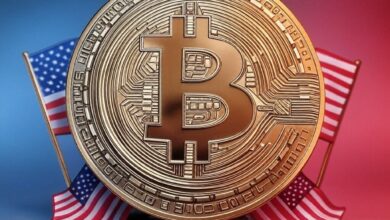Binance’s $4.4 Billion Asset Recovery Amidst Nigerian Regulatory Challenges

Binance has successfully recovered digital assets valued at $4.4 billion for users who encountered errors in their deposits over the last two years. Various factors, including inputting incorrect wallet addresses, depositing incompatible tokens, and issues stemming from blockchain updates, can result in mishandling of funds.
The resolution of 381,616 cases in 2022 and 2023 by Binance involved users depositing crypto assets that were not credited to their accounts. Binance emphasized the need for industry leaders, such as themselves, to support emerging marketplace participants to foster ecosystem growth, safeguard users, and maintain the space’s integrity.
Binance’s Chief Security Officer, Jimmy Su, noted that fund mishandling is likely to persist, especially with newcomers in the market. He said, “This is part of the maturing process for the industry. The majority of the beginners will have a lot of challenges in terms of operating their wallet in a secure way.”
Against the backdrop of recent developments, Binance’s actions hold significant importance. A US District Court Judge approved the $4.3 billion plea agreement between Binance and the US Department of Justice (DOJ). The settlement, announced in November, accused Binance of breaching sanctions and anti-money laundering regulations, leading to a fine, an independent compliance monitor, and the resignation of then-CEO CZ.
CZ, who pleaded guilty to money laundering, remains in the US under a $175 million bail bond, unable to return to his residence in Dubai.
Binance faced additional challenges in Nigeria, where authorities detained employees amid an investigation into market manipulation. The crypto exchange dropped the Nigerian currency, the naira, from its peer-to-peer service, following allegations of currency manipulation, although Binance refuted these claims.
The challenges facing Binance have deepened with the detention of two senior executives in Nigeria amid the country’s intensified crackdown on cryptocurrency exchanges. According to the Financial Times, these executives had traveled to Nigeria in response to the recent ban on several cryptocurrency trading websites. However, upon arrival, they were apprehended by the office of the country’s national security adviser, who seized their passports.
This crackdown is a direct response to the surge in cryptocurrency platforms becoming the preferred channels for trading the Nigerian currency. The naira, grappling with chronic dollar shortages, has seen its official exchange rate closely mirroring parallel market levels after a recent devaluation, marking the second adjustment within a year.
Adding to the complexity, reports emerged of the Nigerian government seeking a minimum of $10 billion from Binance, alleging illegal transactions. However, these claims were contradicted by Bayo Onanuga, clarifying no formal decision had been made. Binance refuted any knowledge of a $10 billion penalty, emphasizing its commitment to resolving issues but resisting fines for staff or services. The situation remains dynamic, amplifying the intricate challenges Binance faces on both global and local fronts.





